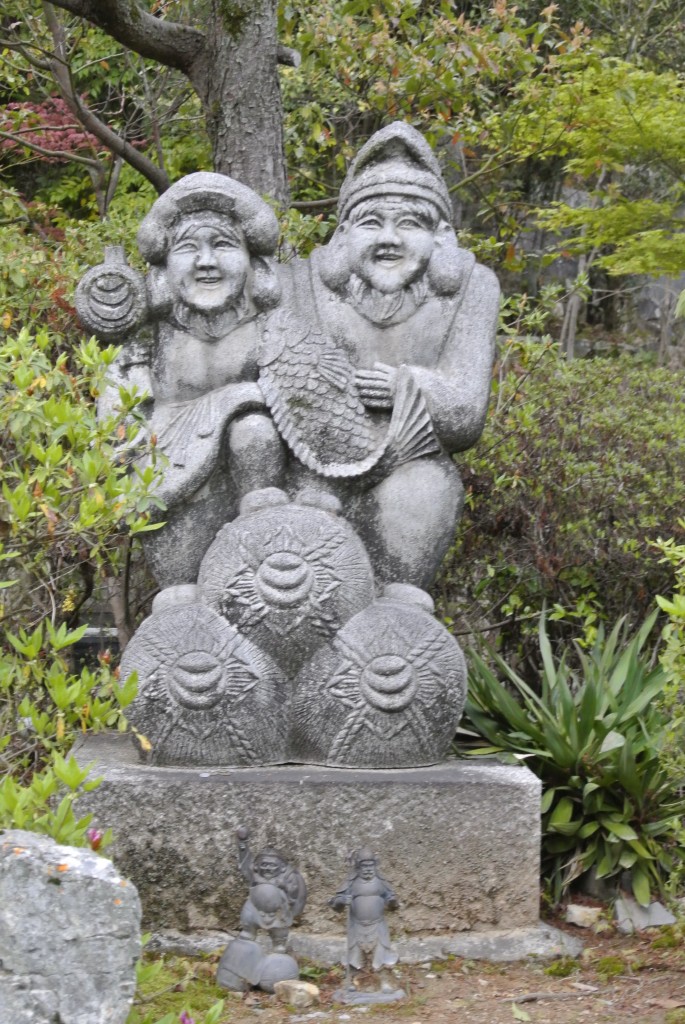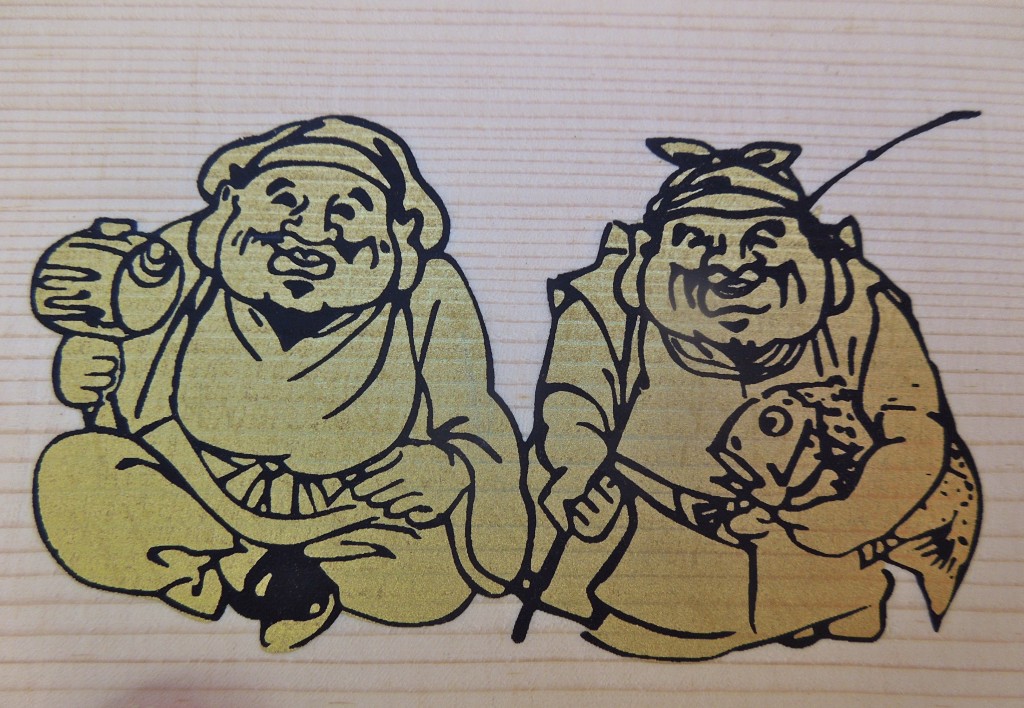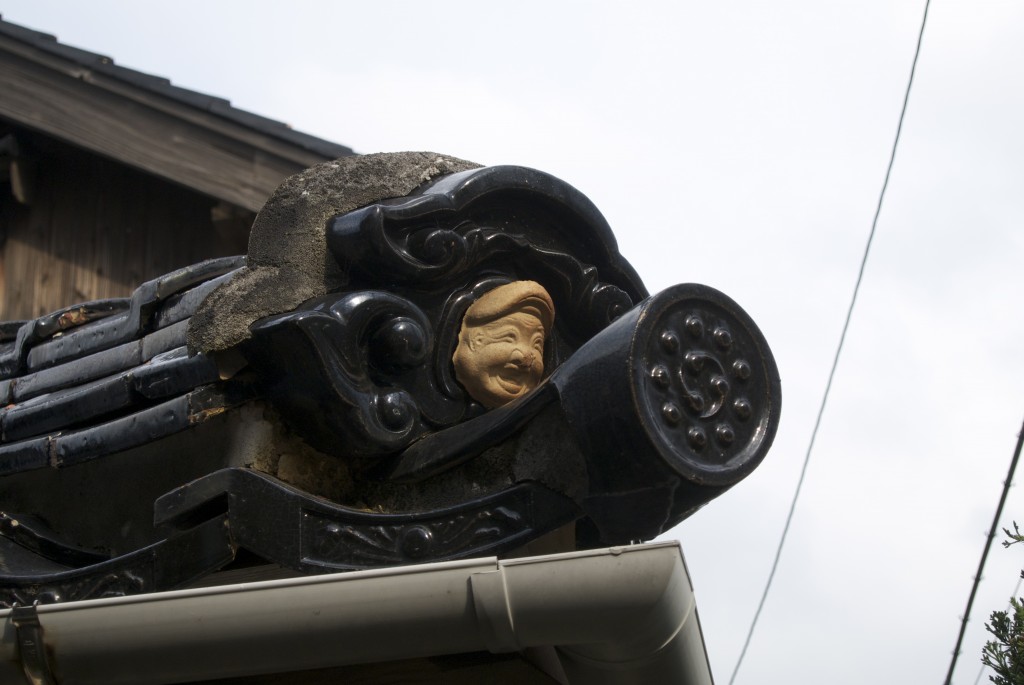
Daikoku and Ebisu are often shown as a pair (some believe they are father and son). Daikoku holds a mallet, Ebisu has a fish.
Ebisu (aka Kotoshiro-nushi-no-kami) is one of Shinto’s most intriguing characters. One of the Seven Lucky Gods, he carries a sea bream and is the patron deity of fishermen.
In medieval times, Ebisu was identified with Hiruko – the leech child of Izanagi and Izanami in the Kojiki (712) who is born without bones (in some accounts without arms and legs). It was the result of his mother’s transgression during the marriage ritual (she went first round the pillar, whereas the lead should be taken by the man).
Hiruko struggled to survive but because he was handicapped he was put out to sea before his third birthday. He was washed ashore—possibly in Hokkaidō—and was cared for by the Ainu. He overcame many hardships and grew legs to become the god Ebisu.
Because of his birth, Ebisu retains some handicaps such as being deaf. It explains why when all the other kami of Japan visit Izumo during kamiarizuki (the month of kami), Ebisu doesn’t hear the summons of Okuninushi. As a result he remains available for those in need in the rest of Japan. Despite his problems, Ebisu is a happy joyful fellow (he’s known as the Laughing God).
Because of his past as the leech child floating on the sea, things like jellyfish are associated with Ebisu. Fugu restaurants too incorporate the deity in their motif. There are even traditions in which whales are seen as Ebisu.
“Depicted as a fisher-man with a red tai (a kind of perch or sea-bream) under his arm and holding a fishing rod he is well known in his capacity as one of the Seven Deities of Good Fortune. But besides this Ebisu of a rather late tradition we find that Ebisu sometimes takes the shape of a human corpse floating on the surface of the sea, sometimes of a shark or a whale, sometimes even of a float-the Ebisu-aba or Ebisu-float-and sometimes Ebisu is just an ordinary stone drifted or brought ashore.” – Nelly Naumann in ‘Whale and Fish Cult in Japan’
There is also Ebisu as a “visiting deity”. Many legends connected with shrines tell of sacred sea-creatures such as a seven-tailed shark or a whale visiting the village on festival day. Sometimes they are regarded as offerings to the deity, but sometimes as a personification of the deity. In this way Ebisu became more than just the fisherman, but the spirit of the creature he killed.

An ema of Daikoku and Ebisu, who is clutching a sea bream and fishing rod

A protective Ebisu on the roof of a fsherman in Shimane prefecture

Leave a Reply